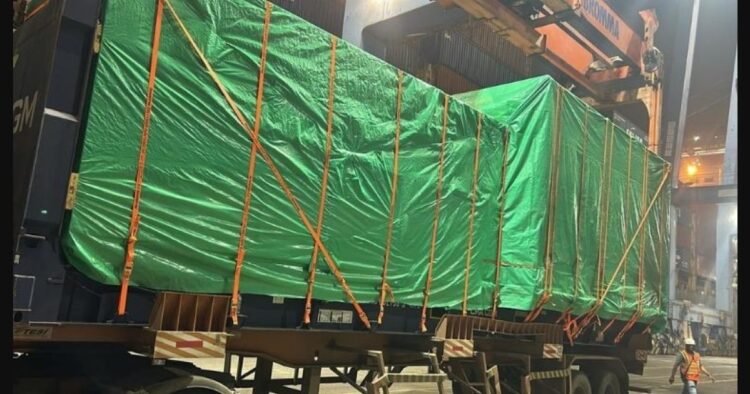Bharatiya security agencies have halted a ship bound for Karachi from China at Mumbai’s Nhava Sheva port over suspicions of carrying a dual-use consignment that could potentially support Pakistan’s nuclear and ballistic missile programme, officials revealed on Saturday, according to PTI reports.
The Customs officials, acting on intelligence input, intercepted the Malta-flagged merchant ship, CMA CGM Attila, en route to Karachi on January 23. The focus of their inspection was a consignment featuring a Computer Numerical Control (CNC) machine manufactured by an Italian company.
Understanding CNC Machines
CNC machines are manufacturing devices where computer software guides the movement of factory tools and machinery. These machines control various complex machinery such as grinders, lathes, mills, and CNC routers, ensuring high levels of efficiency, consistency, and accuracy in production processes.
Concerns Over CNC Machines in Nuclear Programmes
CNC machines have been under scrutiny since 1996 as part of the Wassenaar Arrangement, an international arms control regime aimed at preventing the spread of equipment with both civilian and military applications. Bharat, being one of the 42 member countries, actively participates in monitoring and exchanging information regarding transfers of dual-use goods and technologies.
The apprehension arises from past instances where CNC machines were utilized by countries like North Korea in their nuclear programmes. The recent interception aligns with India’s efforts to curb potential proliferation by countries like Pakistan and China.
The intercepted consignment, originating from China, was documented with the consigner listed as “Shanghai JXE Global Logistics Co Ltd” and the consignee as “Pakistan Wings Pvt Ltd” in Sialkot. However, a deeper investigation revealed that the 22,180-kilogram consignment was actually shipped by Taiyuan Mining Import and Export Co Ltd, intended for Cosmos Engineering in Pakistan.
Cosmos Engineering, a Pakistani defence supplier, has been under scrutiny since March 12, 2022, when Bharatiya authorities intercepted a shipment of Italian-made thermoelectric instruments at the Nhava Sheva port.
Officials have expressed concerns about Pakistan potentially using China as a conduit to obtain restricted items from Europe and the US, often disguising identities to avoid detection. Such worries have been exacerbated by instances like a 2020 case involving the concealment of an industrial autoclave, crucial for missile production, as industrial equipment on a Chinese vessel bound for Pakistan.
The ongoing investigation seeks to ascertain whether the suspected Pakistani entities receiving these dual-use items are supplying them to the Defence Science and Technology Organisation (DESTO), which is responsible for much of Pakistan’s defence research and development.
As the investigation unfolds, Bharatiya authorities remain vigilant to prevent the misuse of technology that could potentially threaten regional stability and security.
This interception underscores the complexities and challenges in monitoring and regulating the flow of dual-use goods in a globalized world, particularly concerning sensitive technologies with potential military applications.

















Comments